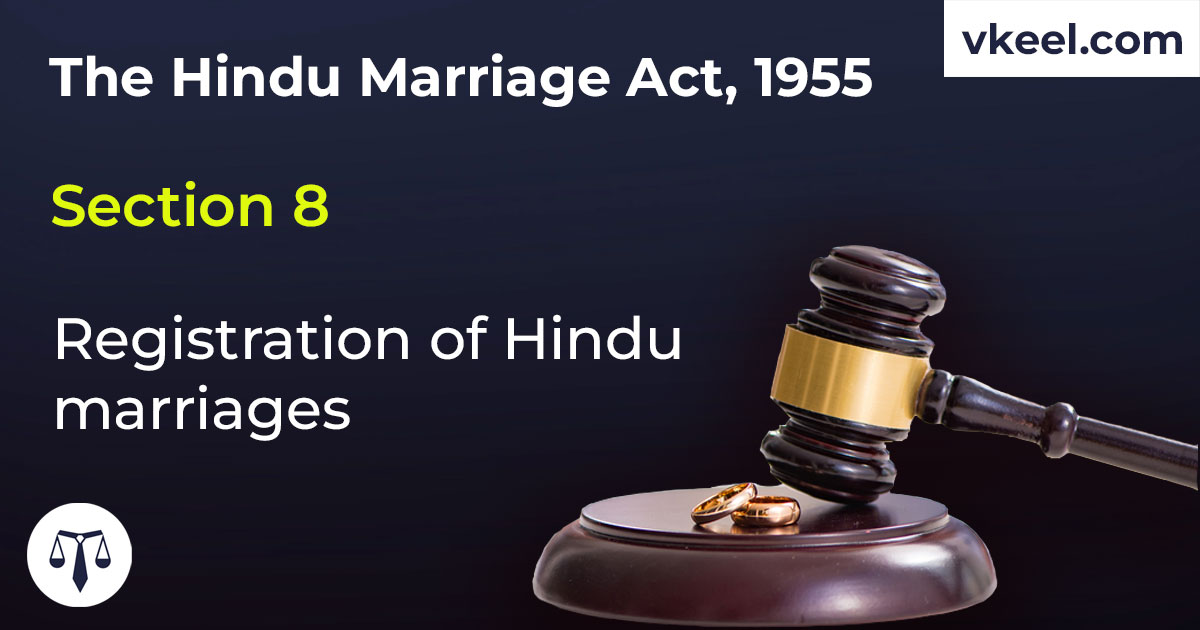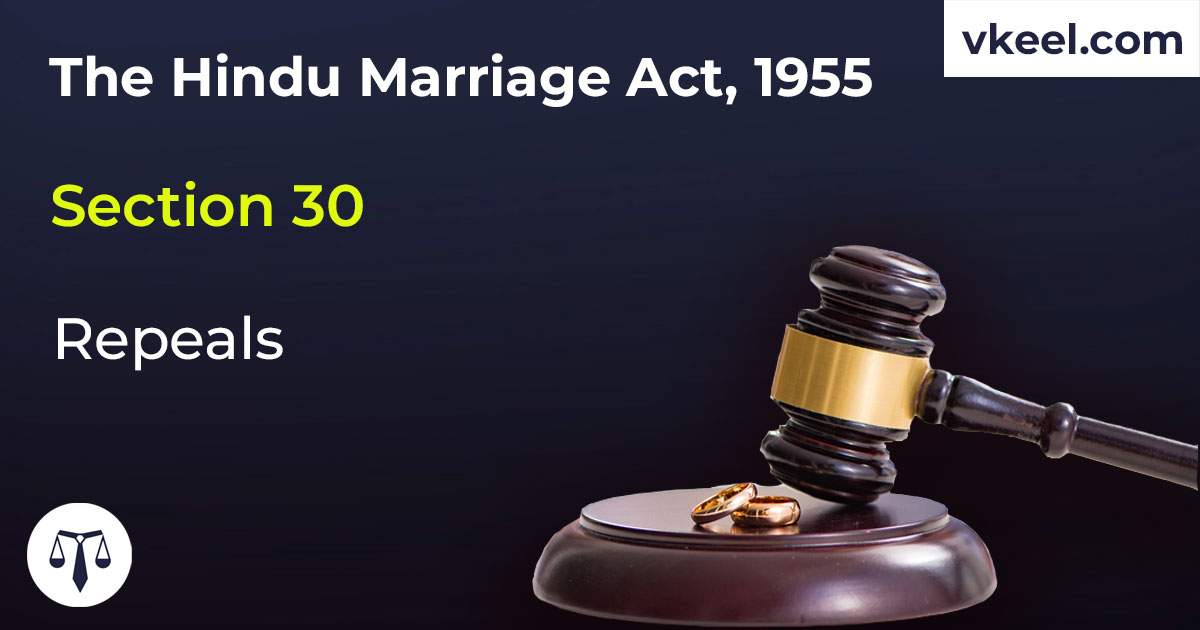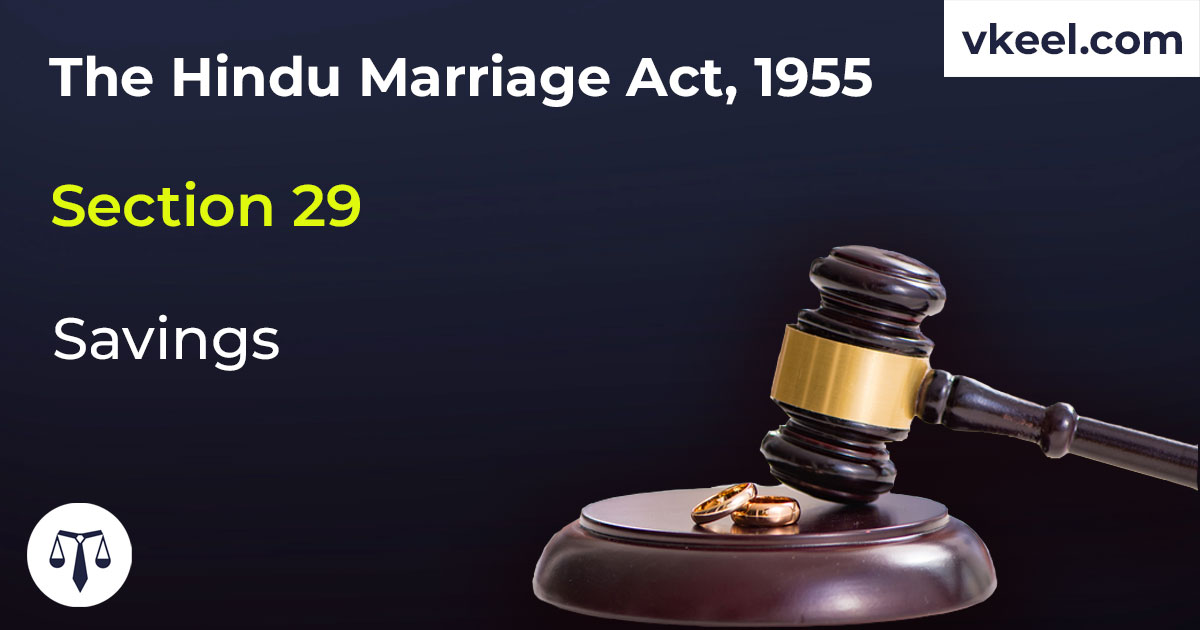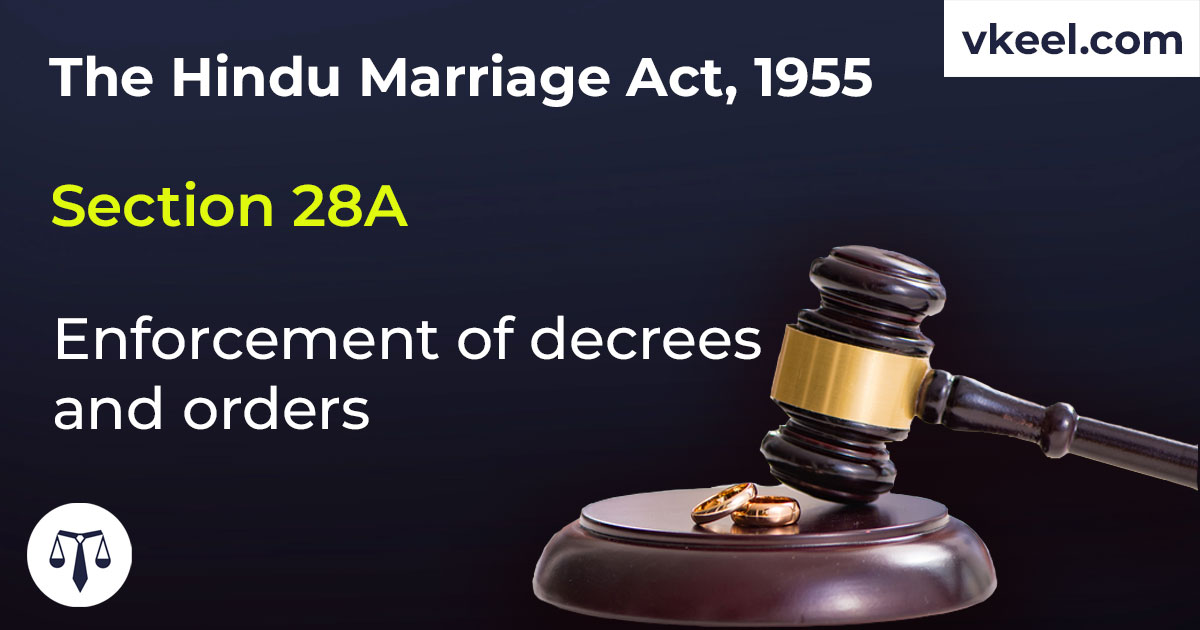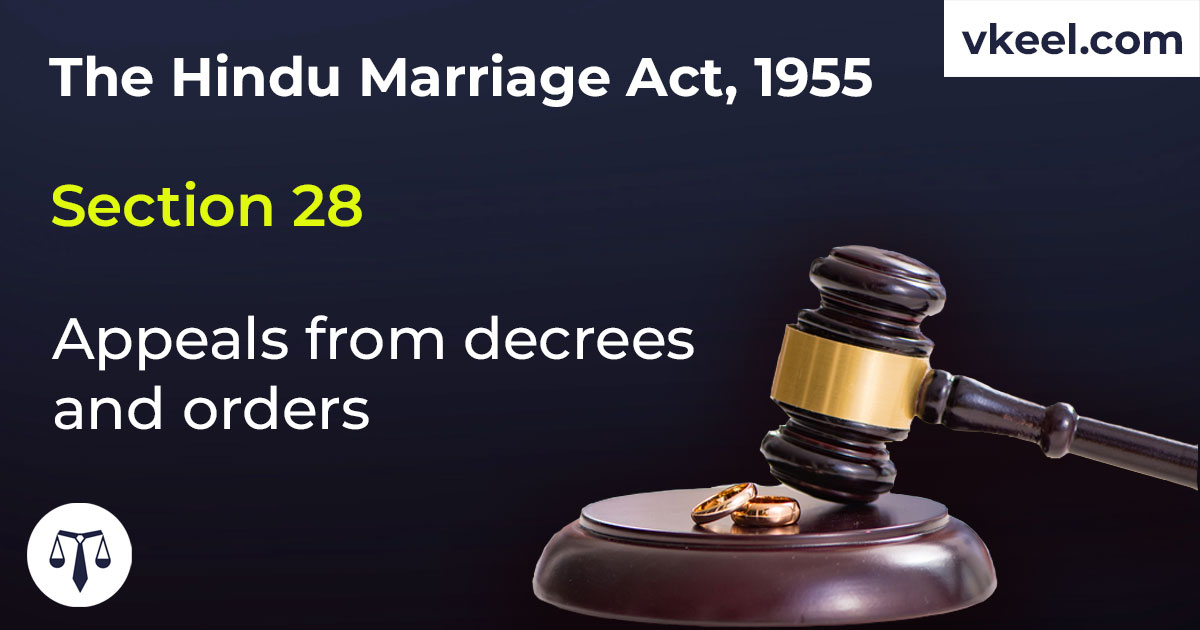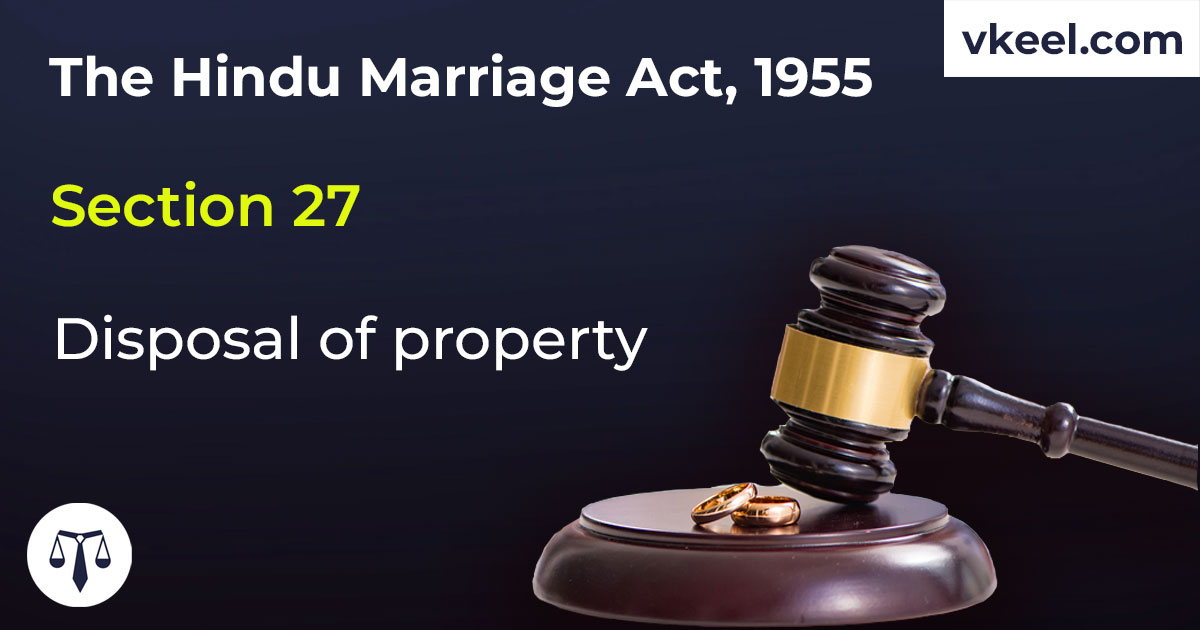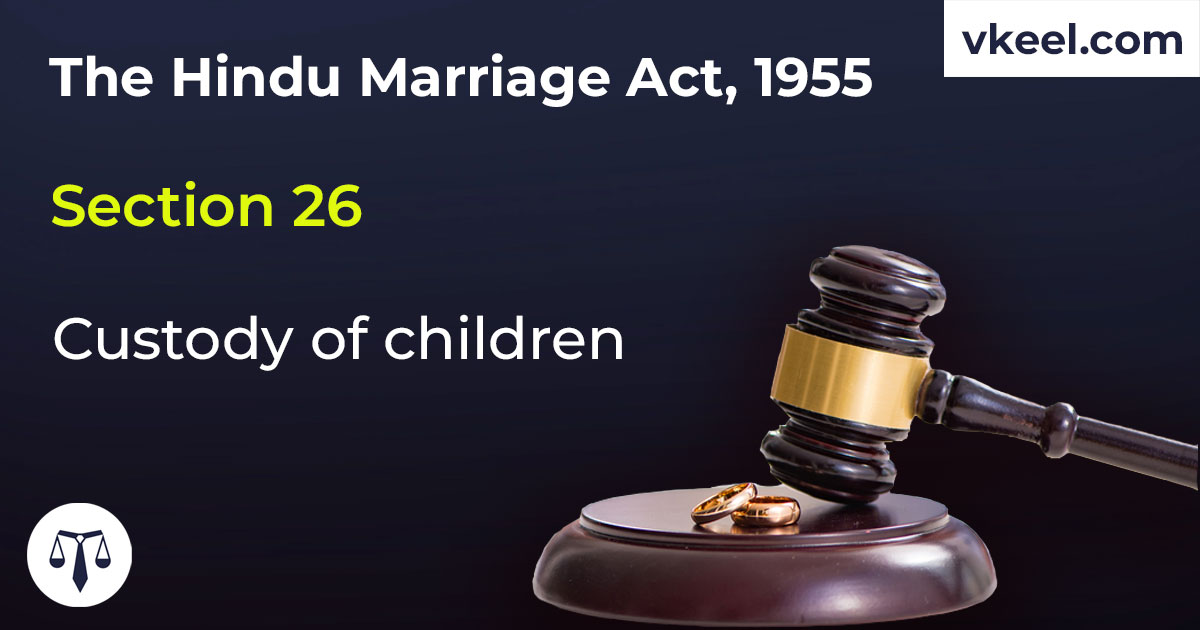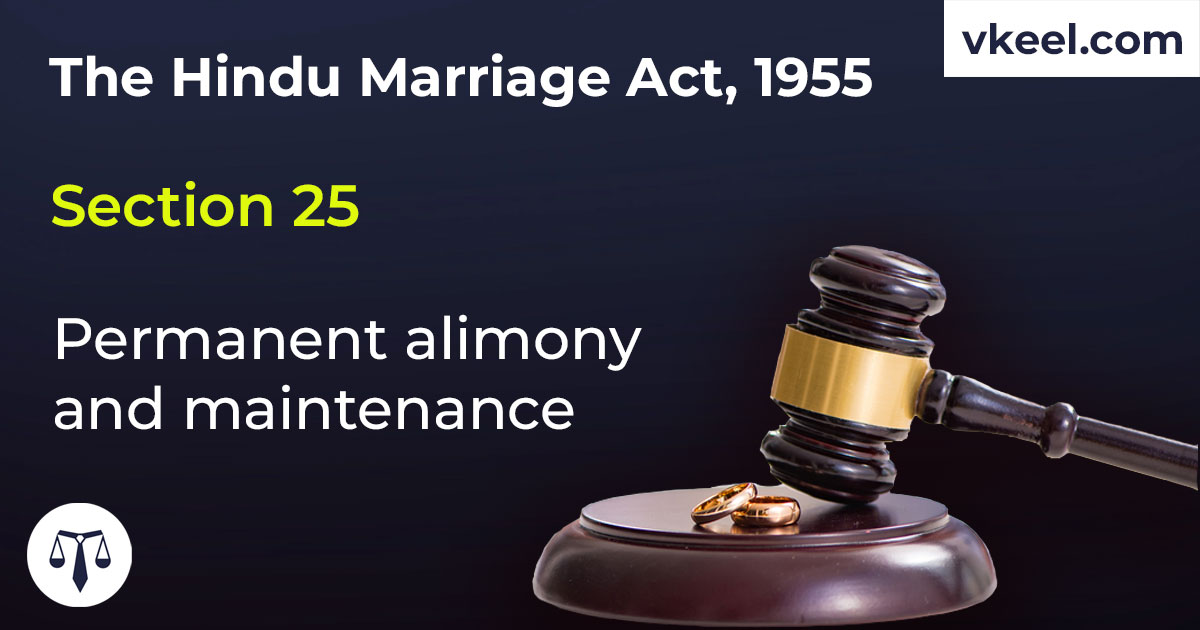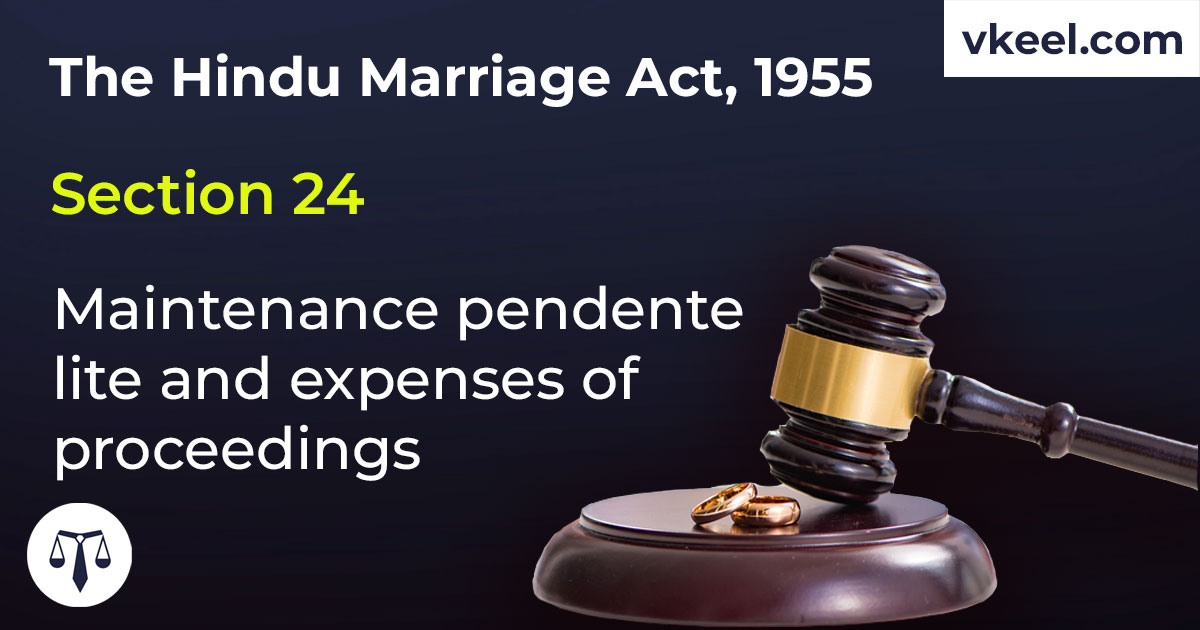Section 8 Hindu Marriage Act 1955 – Registration of Hindu marriages
By Vkeel Team
Description
“Section 8 Hindu Marriage Act 1955”
(1) For the purpose of facilitating the proof of Hindu marriages, the State Government may make rules providing that the parties to any such marriage may have the particulars relating to their marriage entered in such manner and subject to such conditions as may be prescribed in a Hindu Marriage Register kept for the purpose.
(2) Notwithstanding anything contained in sub-section (1), the State Government may, if it is of opinion that it is necessary or expedient so to do, provide that the entering of the particulars referred to in sub-section (1) shall be compulsory in the State or in any part thereof, whether in all cases or in such cases as may be specified, and where any such direction has been issued, any person contravening any rule made in this behalf shall be punishable with fine which may extend to twenty-five rupees.
(3) All rules made under this section shall be laid before the State Legislature, as soon as may be, after they are made.
(4) The Hindu Marriage Register shall at all reasonable times be open for inspection, and shall be admissible as evidence of the statements therein contained and certified extracts therefrom shall, on application, be given by the Registrar on payment to him of the prescribed fee.
(5) Notwithstanding anything contained in this section, the validity of any Hindu marriage shall in no way be affected by the omission to make the entry.
Section 8 Hindu Marriage Act 1955 outlines the process for registering a Hindu marriage.
Section 8 Hindu Marriage Act 1955 outlines the process for registering a Hindu marriage. The Act is an important piece of legislation in India that governs the registration of Hindu marriages.
Under Section 8 Hindu Marriage Act 1955 a Hindu marriage must be registered in the presence of three witnesses. The witnesses must be adults and must be present at the time of registration. The witnesses must also sign the marriage register and provide their full names, addresses, and occupations.
The marriage must also be registered with the local registrar of marriages. The registrar will require the couple to provide proof of age, proof of residence, and proof of identity. The couple must also provide a marriage certificate, which must be signed by the couple, the witnesses, and the registrar.
In addition, the couple must provide a marriage notice to the registrar. The notice must include the full names of the couple, their ages, their addresses, and the date and place of the marriage. The notice must also include the names of the witnesses and the signatures of the couple and the witnesses.
Once the marriage is registered, the registrar will issue a marriage certificate. This certificate is proof of the marriage and must be kept by the couple for future reference.
The Hindu Marriage Act of 1955 is an important piece of legislation in India that governs the registration of Hindu marriages. Section 8 Hindu Marriage Act 1955 outlines the process for registering a Hindu marriage. This blog post has discussed the requirements for registering a Hindu marriage under Section 8 Hindu Marriage Act 1955. It is important to note that all of the requirements must be met in order for the marriage to be legally registered.
Description Source: indiacode
Disclaimer:
The information provided in the article is for general informational purposes only, and is not intended to constitute legal advice or to be relied upon as a substitute for legal advice. Furthermore, any information contained in the article is not guaranteed to be current, complete or accurate. If you require legal advice or representation, you should contact an attorney or law firm directly. We are not responsible for any damages resulting from any reliance on the content of this website.

